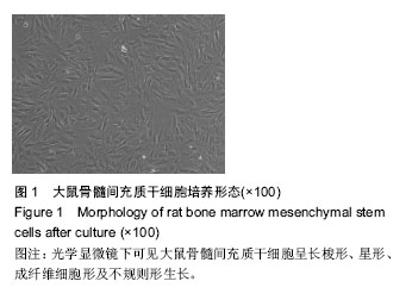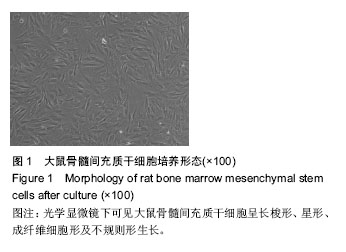| [1] 于文龙,徐薇,于江苏,等.人脐带间充质干细胞移植治疗初发1型糖尿病鼠[J].中国组织工程研究,2013,17(19): 3474-3480.
[2] Volarevic V, Arsenijevic N, Lukic ML, et al. Concise review: Mesenchymal stem cell treatment of the complications of diabetes mellitus. Stem Cells. 2011; 29(1):5-10.
[3] 郑培,安沂华,王晓东,等.脐带间充质干细胞移植治疗糖尿病周围神经病变的疗效观察[J].武警医学,2013,17(5): 398-401.
[4] 李丽,赵博.脐带间充质干细胞移植治疗大鼠糖尿病[J].中国组织工程研究,2014,18(19):3094-3099.
[5] 张弛,肖日军,张娜,等.脐血干细胞移植治疗糖尿病大鼠下肢缺血的实验研究[J].中华损伤与修复杂志,2012,7(1): 12-16.
[6] 蒋朝晖,吕玉晶,赵芳,等.高脂高糖饮食结合链脲佐菌素建立2 型糖尿病大鼠模型的改良[J].中国比较医学杂志, 2011, 21(1):33-36.
[7] Liistro F, Porto I, Angioli P, et al. Drug-eluting balloon in peripheral intervention for below the knee angioplasty evaluation (DEBATE-BTK): a randomized trial in diabetic patients with critical limb ischemia. Circulation. 2013;128(6):615-621.
[8] 闵小春,伍婷婷,杞少华,等.自体脂肪间充质干细胞移植对糖尿病大鼠肾功能的改善作用[J].实用医学杂志,2015, 31(13):2115-2118.
[9] 苏仲春,陈家劲,王圳,等.诱导人脐带MSCs分化为胰岛样细胞团的促成熟方案及机制[J].中国病理生理杂志,2013, 29(2):139-141.
[10] Constantinescu A, Andrei E, Iordache F, et al. Recellularization potential assessment of Wharton's Jelly-derived endothelial progenitor cells using a human fetal vascular tissue model. In Vitro Cell Dev Biol Anim. 2014;50(10):937-944.
[11] 廖菁菁,刘建萍,张维强.干细胞移植治疗糖尿病的研究进展[J].广东医学,2014,35(17):2798-2800.
[12] 贾晓蕾,沈山梅,李莉蓉,等.异体间充质干细胞移植治疗酮症起病1型糖尿病的临床疗效[J].中华糖尿病杂志,2015, 7(7):425-430.
[13] 赵海莲.人端粒酶反转录酶转染的骨髓间充质干细胞移植治疗大鼠糖尿病[J].中国组织工程研究,2015,19(6): 903-907.
[14] Odink H, van den Berg A, Winkens B. Technical and clinical long-term results of infrapopliteal percutaneous transluminal angioplasty for critical limb ischemia. J Vasc Interv Radiol. 2012;23(4):461-467.
[15] 徐谷根,肖毅,尹卓娜,等.不同部位脐血干细胞移植治疗糖尿病大鼠的效果研究[J].中华临床医师杂志(电子版), 2015, 9(13):2602-2604.
[16] 何晏清,杨萍.干细胞移植治疗糖尿病肾病:可能可行与应用[J].中国组织工程研究,2014,18(10):1635-1640.
[17] Bacci MR, Cavallari MR, de Rozier-Alves RM, et al. The impact of lipocalin-type-prostaglandin-D-synthase as a predictor of kidney disease in patients with type 2 diabetes. Drug Des Devel Ther. 2015;38(22):3179- 3182.
[18] 徐谷根,杨茵,尹卓娜,等.脐带血干细胞移植治疗2型糖尿病临床分析[J].中国医药科学杂志,2011,1(22):22-25.
[19] 胡美君,潘兴华,庞荣清,等.干细胞治疗1型糖尿病的研究与应用进展[J].中国组织工程研究,2012,16(23): 4349-4353.
[20] Fioretto P, Mauer M. Reversal of diabetic nephropathy: lessons from pancreas transplantation. J Nephrol. 2012;25(1):13-18.
[21] 马红芳,王富军.脐血干细胞移植及血管成形治疗糖尿病下肢缺血性疾病[J].中国组织工程研究,2015,19(23): 3755-3760.
[22] 樊志刚,樊红亮.胚胎干细胞尾静脉注射移植糖尿病肾病大鼠的氧化应激反应[J].中国组织工程研究,2015,19(14): 2199-2204.
[23] Ezquer M, Ezquer F, Ricca M, et al. Intravenous administration of multipotent stromal cells prevents the onset of non-alcoholic steatohepatitis in obese mice with metabolic syndrome. J Hepatol. 2011;55(5): 1112-1120.
[24] 杨晓燕,潘兴华,阮光萍,等.干细胞移植治疗糖尿病肾病[J].中国组织工程研究,2013,17(1):150-155.
[25] Naruse R, Suetsugu M, Terasawa T, et al. Oxidative stress and antioxidative potency are closely associated with diabetic retinopathy and nephropathy in patients with type 2 diabetes. Saudi Med J. 2013;34(2):135-141.
[26] Chow BS, Allen TJ. Mouse Models for Studying Diabetic Nephropathy. Curr Protoc Mouse Biol. 2015; 5(2):85-94.
[27] 程庆砾,齐云,马强,等.骨髓干细胞在小鼠糖尿病性肾脏疾病表型转移中的作用[J].中国糖尿病杂志,2011,19(10): 777-780.
[28] Desiree L, Alberto M, Jose L,et al. Pathophysiological role and therapeutic implications of inflammtion in diabetic nephropathy. World J Diabetes. 2012;3(1): 7-18.
[29] Khan M, Akhtar S, Mohsin S, et al. Growth factor preconditioning increases the function of diabetes-impaired mesenchymal stem cells. Stem Cells Dev. 2011;20(1):67-75.
[30] 盖维,戴春,吕昌云.骨髓间充质干细胞对糖尿病肾病大鼠足细胞相关分子nephrin 表达的影响[J].中国中西医结合肾病杂志,2014,15(7):600-602.
[31] 田卫东,王瑾,马之学,等.脐带血干细胞移植治疗糖尿病肾病1例[J].河北医药,2011,33(3):479.
[32] Oudot C, Lajoix AD, Jover B, et al. Oxydative stress and beneficial effect of sodium restriction on kidney damage associated with insulin resistance in rats. Ann Cardiol Angeiol (Paris). 2012;61(3):162-166.
[33] 汪年松,姜珍珍.干细胞在肾脏疾病中的研究进展[J].中国中西医结合肾病杂志,2014,15(3):189-192.
[34] 张瑞,戴春.骨髓间充质干细胞对糖尿病肾病大鼠肾脏骨形态发生蛋白-7干预的研究[J].中华临床医师杂志(电子版),2013,7(15):7059-7063. |



